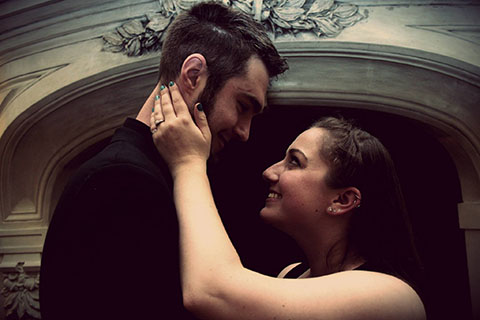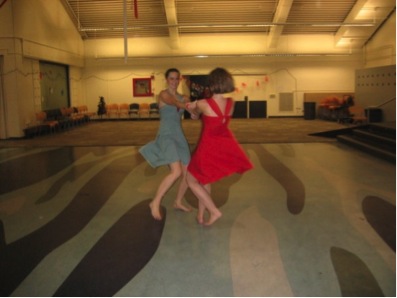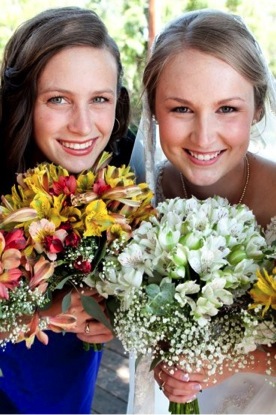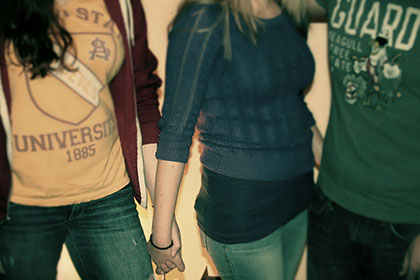Whenever I call my best friend in Pakistan, her mum always prods in the background asking for ‘good news.’ Good news, meaning I’m finally… drumroll please… getting married. As an unmarried 26-year-old Pakistani-American woman, I’m considered by many desi aunties as a bridal ship that has nearly sailed. You see, there’s a reason why that is. Where to begin? The time my father’s old friend said at my grandmother’s funeral: “Betaa (child), my wife loved you for our son, but unfortunately, he is younger than you.” What’s even more baffling is when, enraged, I informed my father he responded, “Uncle’s comment might have sounded untimely, but believe me, that is an amazing family. To be a part of it would have been very precious for us all.” Or the time in a small town in California when an “aunty” whom I met about 56.2 minutes previous and to whom I said the two telling words ‘Assalam Alaikum’ (simply how Muslims say hello) came to me with her ducklings trailing her: three sons. Like the scene in Mulan where they line up to get assessed as honorable brides… I felt like I was at a toy store going: I want that one. My dad was very proud that I am hot on the market.
But let’s move on to my favorite story…
I was blessed enough (read: condemned) that my grandmother (rest her hilarious soul) had a matchmaker cousin in Pakistan. Yes, in the 21st century. Can you sense my excitement?! Keep in mind the old dame was in her 70s at minimum, and apparently an expert at binding young men and women for life. I beg to differ.
Let me explain: I simply do not have any interest in marriage at the moment. I can’t imagine my life fusing with another’s forever until I’ve sorted mine out. I believe holy matrimony is holier when done later in the game; we change so much in our 20s that if you get married early and can’t handle one another’s transformations—big surprise—it is likely to end in divorce. Stats and stories—we all know. Of course, there are exceptions, but Lord knows my values and life goals have changed immensely since my early 20s. I look back and feel silly about the kind of men I used to assess as potential life partners.
My mum and I fought for two weeks about seeing the matchmaker. She did not want to go either, but my grandmother was losing her memory and was so persistent every few minutes of her waking hours that my own mum begged me to be done with it. I caved in hopes of ending the torment. I rebelled in small ways and refused to dress up or even wear my standard makeup for my initial meeting. The matchmaker’s son (my mother’s second cousin), told me that he’s the reason my parents married and hopefully he would be the reason for my own marriage. I bit my tongue so hard I nearly tasted blood. Thanks for being the reason I exist, friend! All I could muster was a half-smile. The matchmaker barely talked to me—she asked my mother where I work, my age, and some other totally irrelevant questions. She confirmed that I have a ‘blue passport’ (American citizenship—this makes me super hot). My mother ensured that it was known I’m vegetarian and that I won’t change. Immediate concern was expressed about whether I would cook meat for my husband. I politely (forcefully) smiled and desperately kept my obnoxious mouth from spewing anything that’ll make my mother look like she didn’t raise a respectful, obedient brown girl. Anything bad I do would make me too Westernized… oh, dear. But seriously, I can’t even cook vegetables for myself, let alone meat for anyone else yet. Another disgraceful quality in me as a brown girl.
Days later, a match! Her long-time neighbor’s son was in town and of age! He was getting a PhD in public policy in Atlanta. I was stunned; okay, shockingly, not horrible. However, he did not have a ‘blue passport’ and would like to stay in the U.S. I was already wary: I told my mother jokingly that I’d marry him and set him free in… the Land of the Free, but it’ll cost him big American bucks. She told me to shut up. I fought ‘til the end, but she promised this is the only one and my grandmother would drop it. His mother and he planned to meet us at my uncle’s home where we were staying. I was not pleased—my uncle has a beautiful and perfect home, and they were going to want me based off my citizenship and that. Why were we inviting strangers to my family’s home?
The day arrived. I rebelliously didn’t wear sleeves; they needed to know of my right to bare arms as a “modern girl.” My mother and I fought in the bathroom about how much makeup I was not wearing. My cousin joined to back-up my mother right before they arrived. My mum greeted them and shortly after told my cousin to “bring me.” I was already over this shit and praying that my gallbladder would burst and explode all over the walls so I could leave. (It didn’t happen. Thanks for nothing, you useless nub. Science hates you too.) My cousin “escorted” me into the room and there they were: a lady eyeing me like we at da club and her scrawny, lanky son sitting at a perfect angle so all I could see was the giant mole on his face. Two words about my thought process: Austin Powers. That will be all. I swear I’m not usually a terrible person, but my pessimism about this whole set up was only serving to spotlight everything negative.
I was forced to serve them tea and snacks, even though there were people in the house hired to do exactly that. I did my best to avoid conversation, and my poor mother tried to break all the long, awkward silences. She asked about his hobbies, and His Lankiness responded… rock climbing. I stifled a guffaw and snorted. I know a professional rock climber, and trust me—the arms on this lad could barely lift up all whopping 103 pounds of big ol’ me. “Do you actually rock climb or use the rock wall at the gym?” I asked as politely as possible. Homeboy over here misunderstood me entirely and told me he works out several times a week at the gym and rock climbs sometimes. I continued to hold my tongue for the sake of my family’s honor. My mum mentioned I love ice hockey and took a class in college. I’m glad she did, because he ought to know I’d beat him with my mean twig if needed. Meanwhile, my cousin was blatantly nudging me about wanting alone time with him, and I was transparently telling her I’d kill her if she suggested it aloud. Eventually, this hellish, unnatural evening came to an end. No discussion was needed.
The matchmaker called a day later, upset we didn’t update her instantly. (I didn’t realize she was our BFF already.) It turned out we won their hearts (yes, we and they—mothers included), and they wanted round two. Regretfully, the matchmaker had to inform them that we never called to share the same sentiment. So we (yes, again, we) broke their hearts. Sorry folks, not every story can have a fairytale endings and matching blue passports.
The matchmaker then proceeded to set me up with another guy who, you guessed it, also wanted to live in Amreeka, as we call it. Annoyed, my mother said she’ll ponder it, that we had a lot happening, with my grandmother’s sudden passing and my cousin’s upcoming engagement. Guess what she had the nerve to say? Her exact words: “Look, Farah, your daughter… she’s nothing extraordinary. She’s pretty ordinary. And before she gets fat, I suggest you marry her off!” My mother, out of respect, laughed nonchalantly, but on the inside she thought: “Lady, I have waited 25 years for this brat to gain weight, and I’m pretty sure it ain’t going to happen now.” I warned my mother to not let this woman come within twenty feet of me or I’ll really bring dishonor to the family. And that’s how the West was won.
As a decent-looking, independent, bicultural, open-minded woman, a Stanford employee, a person with an incredible and diverse circle of friends, a high sense of morality and not too many daddy issues—dare I be too bold to state that I’m a catch? It doesn’t really matter that my clock is ticking: I’m grateful to be able to focus on my own needs. No brown man would want this one anyway—it doesn’t eat meat and can’t cook.
The point is, no matter where you are in life, regardless of your background, you’ll be prodded about the next step in your life. You’re in college, when will you graduate? Graduated—when will you get a job? Job—when will you get married? Married—when will you produce a child? A child—when will you have another because Heaven knows that child will be lonely!
Do whatever you want, kids. Stick it to the man. Or rather, stick it to the aunty.
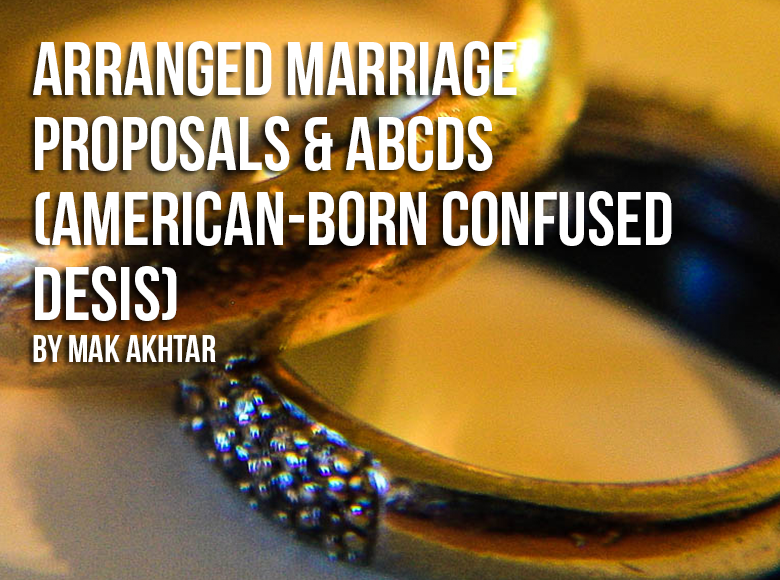
Photo by Gali Levi-McClure

